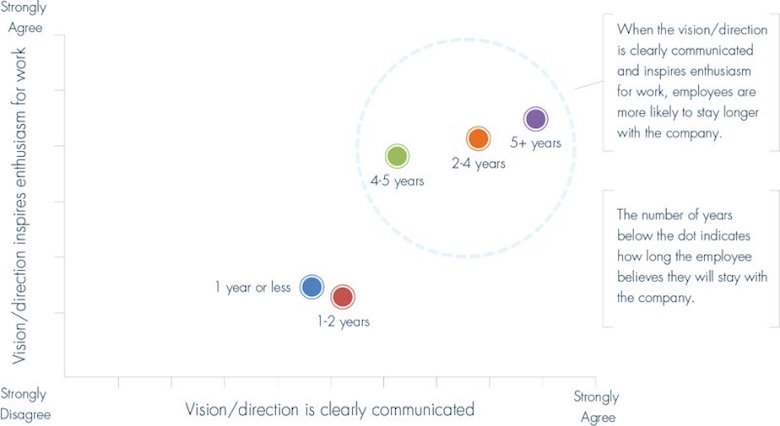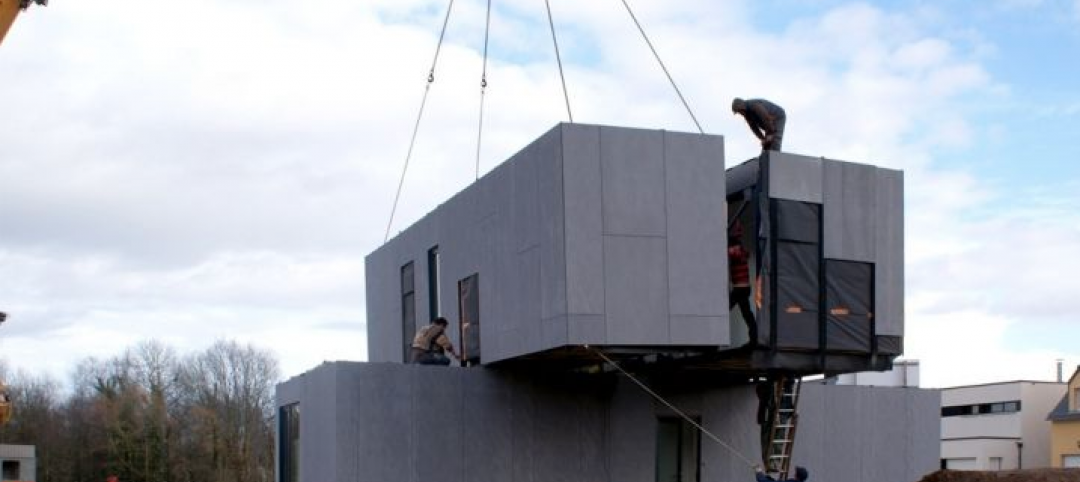Much has been written about Millennials and how they differ from previous generations in their approach to work–and careers in general. Indeed, we see Millennials often unfairly saddled with the dubious reputation for being entitled, disloyal, self-centered or optimistic go-getters, but it turns out that they are actually not that different from their older work colleagues.
In fact, in our recent study “Millennials in Construction: Learning to Engage a New Workforce,” we found that Millennials are indeed very dedicated and loyal to their companies and want to do more than just punch a clock and take home a paycheck. They are looking to add value, make an impact and find meaning in what they are doing.
Company leaders can leverage these realities by ensuring that their young talent has a clear sense of purpose and an understanding of their roles within the larger plan. According to our findings, when the company’s vision is inspiring and clearly communicated, Millennials are 25% more likely to stay longer with the company compared to those who don’t understand the company’s vision and direction.
 Source: FMI 2015 Millennials Survey
Source: FMI 2015 Millennials Survey
Not unlike other generations that enter the workplace, Millennials have new perspectives to share, new ideas about getting things done, and new ways of tackling problems.
The following five areas highlight why this new generation is like a breath of fresh air for the construction industry:
1. Loyalty and dedication. The majority of our survey participants want to stay more than five years with their company, as opposed to jumping ship in the near term. Given good opportunities for career advancement, support for education, a collaborative culture, and competitive pay and benefits, this group of workers will go above and beyond to drive organizational success.
2. Innovative thinking. In an industry that is changing dramatically through emerging technologies and new delivery systems, Millennials welcome the opportunity to provide input and new ideas that promote corporate innovation. As one survey participant stated, “I’m free to be creative and try new things.” Progressive companies like DPR Construction, for example, encourage employees to use a special website to submit ideas for improvements, which can be related to software, tools or company protocols among other things.
3. Tech-savviness with a personal touch. It is true that many Millennials adopt new technologies and gravitate toward digital media more easily compared to their older colleagues. However, when it comes to learning new skills at work, our research showed that 86% of respondents favored face-to-face feedback rather than a digital setting. This mix of tech-savviness, combined with a need for personal interaction, can help companies drive change across multiple generations while infusing the industry with a fresh new perspective.
4. Balance. Millennials are looking for a healthy work-life “integration.” This can be difficult to attain in the construction industry, which often requires long hours, remote work or challenging work conditions. However, if employers want to recruit and retain star talent they will need to reconsider some of their traditional corporate policies and practices and find new ways to create a healthy work-life blend for their young employees.
5. Collaboration and communication. Many Millennials grew up with parents, teachers and counselors who were their best friends and role models. As such, they are excellent team players and care about the company’s success – not just their own jobs. The timing for this kind of mindset is perfect: new virtual design and construction tools and integrated project delivery methods will all require higher levels of collaboration within and among project teams. Having these young people focused on a common purpose, effective processes, excellent communication, and solid relationships will help transform the industry over time.
More from Author
FMI | Aug 11, 2022
Commercial Energy Efficiency: Finally “In-the-Money!”
By now, many business leaders are out in front of policymakers on prioritizing the energy transition.
FMI | Jul 18, 2022
Understanding the growing design-build market
FMI’s new analysis of the design-build market forecast for the next fives years shows that this delivery method will continue to grow, despite challenges from the COVID-19 pandemic.
FMI | May 3, 2019
Attracting the next-generation workforce, and no, we don’t mean Millennials
How to reach the next generation of talent to recruit and retain your future leaders.
FMI | Jul 23, 2018
Offsite construction: Why it’s important for the survival of your firm
The industry is approaching its “heart attack moment,” with so many large projects that are chronically late, over budget, and unprofitable, writes FMI Capital Advisors’ Michael Swistun.










